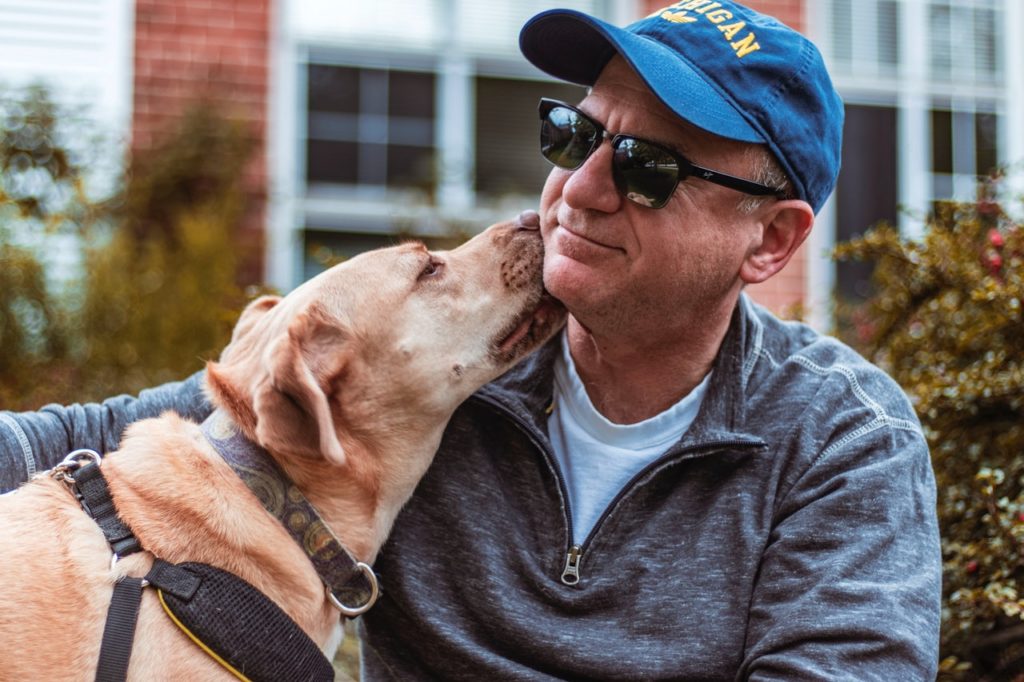
Most people have the vague idea that estate planning is about passing on one’s assets to loved ones when we die. This is true, but is a bit more involved than that. Estate planning is a series of legal documents that clearly spell out your wishes when you pass away or cannot make decisions for yourself.
Let’s explore the essentials of estate planning with Gentreo founder and Chief Legal Officer Mary Kate D’Souza, an attorney with over 20 years of experience in estate planning, elder law and probate litigation.
What is Estate Planning?
“Estate planning does a lot more than just saying who gets what when you pass away,” said Mary Kate. “It’s your plan for yourself and your loved ones’ future needs. It’s about making your wishes known so that your choices will be legally enforced. It is taking action now so that your choices, your loved ones, and your assets are protected by having essential estate planning documents.”
Not having an Estate Plan in place can be devastating – often leading to legal action and family strife.
“I have seen firsthand the wreckage when families fail to properly prepare,” said Mary Kate. “That’s why at Gentreo, we are on a mission to protect 10 million American families.”
An estate plan can include a Will or a Trust, a Power of Attorney, Health Care Proxy, and a Pet Power of Attorney (if you have pets). Life insurance, funeral and legacy planning, and an Emergency Card round out a comprehensive estate plan.
Once your estate plan documents have been created, you need a secure and accessible place to store them, such as in the Gentreo Digital Family Vault. Here, you can easily share the documents with loved ones and update plans as your life circumstances change.
Mary Kate explains each estate planning document and how it helps to protect you and your loved ones.
How a Will Supports Your Estate Plan
A Will is the foundation of an estate plan where you state your wishes as to how your assets – property, investment accounts, valuables – would be distributed to beneficiaries of your choice after you die. However, a Will is more than just about your assets.
“This is a legal document that allows you to nominate guardians for your minor children, give gifts to loved ones and charities, and choose a person to uphold your wishes as expressed in the Will,” Mary Kate said.
A Will goes into effect only after you die. You appoint a personal representative – an executor – to oversee the execution of the Will and carry out your instructions. A Will should also have contingent beneficiaries, or second and third choices.
Having a Will:
- Ensures your final wishes are carried out
- Lets you control who gets what
- Allows you to appoint a guardian for your minor children
- Avoids litigation and family conflicts
Dying Without a Will
Some people feel they don’t need a Will because they don’t own much. Rich or poor, or somewhere in between, everyone should have a Will.
“Remember, it’s not only about your assets, it’s about who you want in control when you die,” said Mary Kate.
If you die without a Will, the intestacy laws of your state determine who gets your assets. In this case, your loved ones would have to petition the court to be put in charge of your estate, regardless of how much or how little you own.
“Ask yourself this, ‘Does everyone who loves me get along and think the exact same way?’” Mary Kate said. “For most of us, the answer is ‘no.’ Most people come from families and situations where there are fractured and contentious relationships.”
For example, say you live with your boyfriend who is disliked by your parents. You die in an accident. In this scenario, both your boyfriend and parents will want to be in charge of your estate.
“Absent a Will, a judge decides – without any input from you – who is in charge of your estate,” explains Mary Kate. “Your parents would have priority because they are blood relatives. They may make decisions without any consideration for what your boyfriend or you would want.”
For parents of minor children, in a Will, you can nominate an order of those you would want to be guardian of your children should the unexpected happen. Without a Will in place, a judge would decide.
“Do you really not want your choices to be considered?” asks Mary Kate. “Most of us do. That is why we have a Will. Having a Will allows your loved ones to honor and respect your final wishes and avoids conflict. In my experience as a probate attorney, most surviving loved ones are burdened when someone dies without a Will because it causes conflict at an already grief-stricken time.”
How to Protect Your Pets With Your Estate Plan
We love our pets and treat them like family. However, the law recognizes them as assets.
“This means you cannot leave a gift to your beloved pet in your Will,” said Mary Kate. “You can, however, give your pet to a loved one in your Will so that your pet can be taken care of.”
If you become incapacitated or leave your furry friend in the care of someone while you are away and an emergency happens, a Pet Power of Attorney ensures the protection of your pet. Like a regular Power of Attorney, the Pet Power of Attorney allows you to appoint someone to make decisions on your behalf for your pet if you cannot.
In your Gentreo Digital Family Vault, you can also fill out the pet care file so your agent can have immediate access to your pet’s daily care and medical needs.
Gentreo will soon be offering a Trust for Pet Care where you can set aside funds for the care of your pet.
A Pet Power of Attorney:
- Provides care for your pet in your absence or incapacitation
- Gives legal authority to your agent to make decisions on your behalf for your pet
- Allows you to set directives for the type and cost of care

How a Revocable Living Trust Works in Your Estate Plan
This is another way to protect and distribute your assets. It provides legal protection of your assets during your lifetime and after you die. These assets include property, bank accounts, or retirement funds. The Trust owns or holds assets under the authority of a Trustee – a person you appoint to oversee the Trust.
“A Trust controls only what the Trust owns,” said Mary Kate.
Let’s say you own a vacation home and a family home. You transfer the vacation home to the Trust and keep family home in your name. You want your son John to have the family home, your daughter Mary to get the vacation home, and you don’t want anything to go to your daughter Eve, who you’ve cut off because of her actions.
You die with only the Trust as your estate plan – no Will. The Trust states Mary is to receive the vacation home and John to inherit the family home. There is no provision for Eve.
The Trustee gives the vacation home to Mary but cannot give John the family home. Since you kept the family home in your name and did not put it into the Trust, the Trust does not “own it.”
Because you did not have a Will, the family home and all your other assets are distributed according to the intestacy laws in your state.
In this case, John, Mary, and Eve all inherit the family home. Eve now owns one-third of the family home even though you did not want her to inherit anything.
“This was not the intention of the Trust-based Estate Plan,” Mary Kate said. “This plan failed because your Trust was not properly funded.”
A way to avoid this scenario would be to create a Pour-Over Will. This specifies that the only beneficiary of the Will is the Revocable Trust. All assets you own get poured into the Trust upon your death.
In the example, the family home would have become part of the Trust under the Pour-Will scenario, and your wishes would be followed.
Having a Revocable Living Trust:
- Allows you to manage your assets while living
- Distributes assets upon your death
- Gives you the option of changing the terms
- May help avoid probate
Why You Need Supplemental Documents: Health Care Proxy & Power of Attorney
If you cannot make your own financial or medical decisions, a Power of Attorney and Health Care Proxy allow you to appoint someone to make them for you.
The Power of Attorney carries out financial decisions, while a Health Care Proxy carries out your health care wishes if you become incapacitated.
In the Health Care Proxy, you can provide instructions for end-of-life treatment, whether you want to be resuscitated, receive artificial nutrition, and your choice about life support.
Life can change in an instant. Without a legal document spelling out your health care wishes or having a person of your choice to make medical decisions on your behalf, your family could be torn as to what treatment you should receive in the time of a crisis when quick decisions have to be made.
“Do you want to be the person to burden your loved ones with these decisions because you failed to take the time to plan?” Mary Kate asks. “Do you want the courts to make your healthcare decisions?”
Let’s say there is an older couple where the husband, who is healthy, makes all healthcare decisions for his wife who has Parkinson’s Disease and dementia. He has a heart attack and does not have a Health Care Proxy. Who will make his healthcare decisions?
In this scenario, the couple’s children would have to petition the court to be appointed their father’s guardian and make decisions for his care.
“If the dad had a Health Care Proxy, his chosen person could have immediately made healthcare decisions for him,” said Mary Kate.
Because the husband is now incapacitated, his wife is vulnerable because she does not have a Health Care Proxy alternate. Their adult children would have to receive court approval for guardianship to make her healthcare decisions as well.
With both parents unable to manage their assets, this is where a Power of Attorney is critically needed.
In this example, since neither parent has a Power of Attorney, their adult children, once again, would have to go to court to take care of their financial needs.
If the father had a Health Care Proxy and Power of Attorney and had chosen their adult children as alternates, the children could have stepped in without court involvement and seamlessly made decisions for their parents.
“Their parents’ lack of planning has cost thousands of dollars in court and legal fees, plus time delays during a medical crisis and compounded the stress of an already challenging circumstance,” said Mary Kate. “If the parents had Health Care Proxies and Powers of Attorney naming their children as alternates, all these hassles could have been avoided.”
Without a Health Care Proxy and Power of Attorney:
- The court would appoint someone to make decisions on your behalf
- You have no control to carry out your wishes
- You place an added burden on your family

Storing Your Documents is a Key Piece of an Effective Estate Plan
You need a secure, accessible place to store your estate planning documents. The Gentreo Digital Family Vault provides instant access and allows you to choose family members or friends to share the vault with so that they can access the documents when they need them.
Most people store their documents in a bank safe deposit box, one of the “worst places” you can use, according to Mary Kate.
Suppose a young couple from Massachusetts is involved in a car crash in Florida. The husband is in a coma and his wife, by his side, needs to access his Health Care Proxy document which is stored in their joint bank safe deposit box.
In this case, the wife would have to create a Power of Attorney to give someone in Massachusetts authority to access the safe deposit box. If their documents were in a digital location, the wife could have easily accessed them.
“It’s more convenient if the documents are in an easily accessible central location,” said Mary Kate. “If it’s in the Gentreo Digital Family Vault, with just a few clicks of a button, she could have accessed his Health Care Proxy and other documents.”
Reviewing Your Estate Plan
Your estate plan should be reviewed yearly, particularly at tax time. Life changes – a divorce, new marriage, buying property, having a baby. The estate plan needs to be revised accordingly.
Estate Planning is for Everyone
Estate planning not just for the jetsetters, it’s for everyone, regardless of whether you own lots of property or have limited assets. It’s about preparing and protecting yourself and your loved ones.
The COVID-19 pandemic has increased the need for estate planning, particularly for young people.
“Unfortunately, the pandemic has highlighted the need for younger adults who turn 18 to create an estate plan,” said Mary Kate. “It is especially important if the adult child is in school, out-of- state or from a divorced family. An 18 year-old should create a Health Care Proxy and a financial Power of Attorney.”
An estate plan will give you peace of mind.
“Remember estate planning is about preparing for the future – the more you plan and prepare, the more you control the outcome,” Mary Kate said.
Don’t wait until it’s too late; start your estate planning journey with Gentreo today. By doing so, you’ll not only protect your loved ones but also gain the peace of mind that comes with knowing your legacy is secure. Click HERE to join now.
This article is for informational purposes only and should not be considered legal advice. Consult with a qualified attorney or estate planning professional for personalized guidance.










